| Minister of Public Security of the People's Republic of China | |
|---|---|
| 中华人民共和国外交部部长 | |
.svg.png.webp) | |
 | |
| Ministry of Public Security of the People's Republic of China | |
| Member of | State Council |
| Reports to | Central Foreign Affairs Commission |
| Seat | Beijing |
| Nominator | Premier (chosen within the Chinese Communist Party) |
| Appointer | President with the confirmation of the National People's Congress or its Standing Committee |
| Formation | 1 October 1949 |
| First holder | Luo Ruiqing |
| Deputy | Vice Minister of Public Security |
The minister of public security is a member of the State Council of the People's Republic of China and the head of the Ministry of Public Security (MPS). The position reports directly to the head of the Central Political and Legal Affairs Commission (CPLC) of the Chinese Communist Party. Within the State Council, the position is eight in order of precedence.
The minister is tasked with overseeing the police forces throughout the country.[1] The minister concurrently serves as the director of the MPS Special Duty Bureau, responsible for protecting high-ranking political leaders. The ministers are each awarded the police rank of chief superintendent. The minister also usually serves as a state councillor and as the deputy secretary of the CPLC.[2]
The minister is assisted by several vice ministers. Vice ministers generally serve as the director of the National Immigration Administration, director of the Beijing Municipal Public Security Bureau, director of the Legal System Bureau and director of the Political Security Bureau.[2]
Selection
Officially, the minister is nominated by the premier of the State Council, who is then approved by the National People's Congress or its Standing Committee and appointed by the president.[3]
List of ministers
| No. | Portrait | Name | From | To | Premier |
|---|---|---|---|---|---|
| 1 | 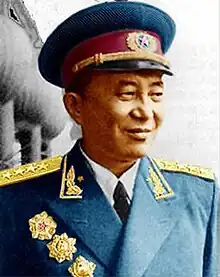 |
Luo Ruiqing | October 1949 | September 1959 | Zhou Enlai |
| 2 | 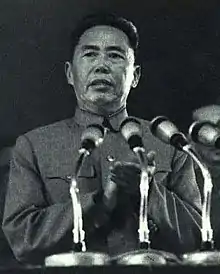 |
Xie Fuzhi | September 1959 | March 1972 | Zhou Enlai |
| 3 | 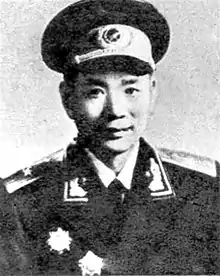 |
Li Zhen | March 1972 | 1973 | Zhou Enlai |
| 4 | 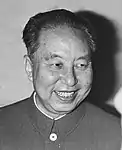 |
Hua Guofeng | 1973 | March 1977 | Zhou Enlai |
| 5 |  |
Zhao Cangbi | March 1977 | April 1983 | Hua Guofeng |
| 6 |  |
Liu Fuzhi | May 1983 | August 1985 | Zhao Ziyang |
| 7 |  |
Ruan Chongwu | September 1985 | March 1987 | Zhao Ziyang |
| 8 |  |
Wang Fang | April 1987 | November 1990 | Zhao Ziyang |
| 9 |  |
Tao Siju | December 1990 | March 1998 | Li Peng |
| 10 | 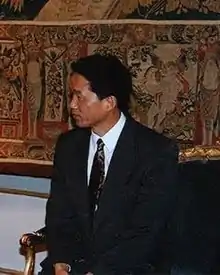 |
Jia Chunwang | March 1998 | December 2002 | Li Peng |
| 11 | 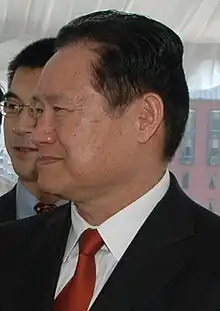 |
Zhou Yongkang | December 2002 | October 2007 | Zhu Rongji |
| 12 | .jpg.webp) |
Meng Jianzhu | October 2007 | December 2012 | Wen Jiabao |
| 13 | 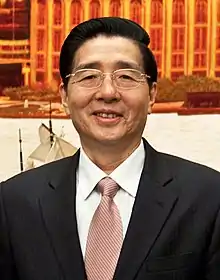 |
Guo Shengkun | December 2012 | November 2017 | Wen Jiabao |
| 14 | .jpg.webp) |
Zhao Kezhi | November 2017 | June 2022 | Li Keqiang |
| 15 | 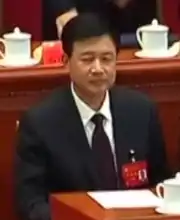 |
Wang Xiaohong | June 2022 | incumbent | Li Keqiang |
References
- ↑ "China's Xi Names Police Ally to Head Public Security Ministry". Bloomberg News. 2022-06-28. Retrieved 2023-11-19.
- 1 2 "Decoding Chinese Politics". Asia Society. Retrieved 2 October 2023.
- ↑ "Constitution of the People's Republic of China". National People's Congress. Retrieved 2022-08-08.

